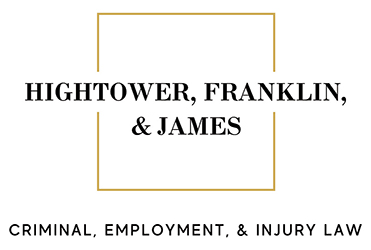If you are charged or arrested for a crime in Nacogdoches, you may also be charged with a complaint for violating the Stephen F. Austin State University Student Conduct Code, even if the offense occurred off campus. Stephen F. Austin State University disciplinary action may include suspension, dismissal, expulsion or letters of reprimand. Defending your criminal charges may, therefore, be only half the battle. Below are links helpful for an understanding of the disciplinary process.
- Stephen F. Austin State University Student Conduct Code
- Hazing
- Illicit Drug and Alcohol Abuse
- Student Rights and Responsibilities
Students have important rights in student conduct proceedings. DO NOT REPRESENT YOURSELF IF CRIMINAL CHARGES ARE PENDING OR YOU ARE THE FOCUS OF A CRIMINAL INVESTIGATION. STATEMENTS YOU MAKE WILL BE USED AGAINST YOU IN CRIMINAL COURT.
Don’t hesitate to contact us immediately, to discuss the disciplinary process and how we can help you defend against a student conduct complaint associated with criminal charges, in addition to representation in any criminal proceedings.
I think I may have done something wrong. The police have asked me to come in and talk to them about what happened. They “just want my side of the story.”
Talk to your lawyer first. What the police probably want is your confession or your version of the story so they can have the opportunity to prove it wrong or to catch you in some intentional or inadvertent falsehood. There are two things to remember:
1) It is up to the police to make a case against you and you should not be helping them by having conversations about your case without your lawyer present.
2) Sometimes when the police cannot make the main case against you they will hope to catch you in some false statement so they can file an equally serious charge against you such as the federal charge of making a false statement. Under these circumstances, NEVER, NEVER, NEVER GO IN AND TALK TO LAW ENFORCEMENT AUTHORITIES WITHOUT FIRST CONSULTING AN EXPERIENCED CRIMINAL LAWYER. If the police ask you to talk to them, you should tell them you would be most happy to do anything that your lawyer tells you to do and refer them to your lawyer. He will decide whether you should talk with them or not.
The police want to search my car or search my home and they are asking me for permission. I am worried about what they might say they found.
Without probable cause to search your car or your home the police must have your consent. You have the constitutional right to refuse to give permission for the police to search. Sometimes when “consent” is given to search your car or to search your home, the police come upon some contraband which you did not even know was present. It may have belonged to a prior passenger or to a visitor in your home. The police will charge you with this violation. Since most requests for car searches are done on the highway while the police are videotaping the stop, it is difficult for the police to “remember” the facts any differently than shown on the police video. The refusal of consent is an exercise of your constitutional rights and the video will show your refusal. If it is possible, you may want to tell them that you will do whatever your lawyer tells you to do, but you will not consent to any search until you have talked to your lawyer.
I have been stopped on my way home from church where I took communion so my breath smells like alcohol. The officer wants me to do a bunch of tests and take a breath test at the station. Must I do so?
In Texas you have an absolute right to refuse to take a breath test or the field sobriety tests. The three standard field sobriety “tests” consist of (1) the officer looking into your eyes, having you follow a pen light or other stimulus and deciding whether or not your eyes “jerk” (a test only officers can see); (2) standing on one foot and counting; (3) walking nine steps, heel to toe, turning around and walking back.
All these tests are probably recorded on a video tape and if the terrain is uneven or if you are uncoordinated or overly nervous, your chances of passing these tests may be pretty low. The officer gives you no points for doing any part of the test correctly but only scores negative points when he decides that you have not performed them properly. If you refuse to perform the tests, the officer may decide to arrest you. If you take them and the officer decides you didn’t meet his standards, he will arrest you anyway. It is up to you to decide whether you should agree to perform the officer’s tests, but, if he felt you were not intoxicated he would probably not ask you to take the tests.
Should I take the breath test?
Even the manufacturer of the breath testing device used in Texas does not warrant it to be fit for any particular purpose. There is a great debate over whether the machine accurately assesses alcohol concentration because blood alcohol concentration appears to vary depending on gender, weight, consumption of food and many other variables. Since the machine doesn’t save any of the breath, you cannot have it re-tested.
The officer seems so friendly and asks me several questions about matters not even related to my arrest, such as sports or local events. Why is this?
It is probably because the officer wants to have a lot of your speaking on his video camera so that a jury can later hear every word you say and allow the state to argue that your words are abnormal or slurred due to intoxication. The less you say the better off you are.
Is there a fee for talking to a lawyer about my case?
At Hightower, Franklin, & James, PLLC., we do not charge an initial consultation fee. We encourage everyone to call or stop by the office to speak with one of our attorneys about your case.
The lawyer I‘m talking to doesn’t charge nearly as much to represent me as some of the other lawyers. Why is this?
The chances are that you will get exactly what you pay for. Many times lawyers who have little experience or who are just starting out in practice do not charge very much for their service because they are still learning or they know they don’t usually try cases and will probably “plea bargain” your case anyway. You should not choose a lawyer based on fee but on competence and experience.

